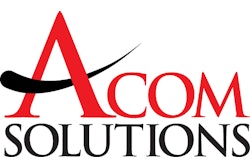Test run carried out at retailer's "Innovation Center;" said to be first in the industry
Everett, WA — April 8, 2005 — The METRO Group, one of the world's largest retailers, and radio frequency identification (RFID) providers Royal Philips Electronics and Intermec Technologies Corp. today announced the industry's first demonstration of an electronic product code (EPC) Generation 2 RFID system at METRO Group's RFID Innovation Center in Neuss, Germany.
During the demonstration an RFID-enabled Intermec IF5 reader read Intermec Intellitag Gen 2 smart labels containing Philips Generation 2 RFID chips.
Now the companies are set to equip METRO's RFID Innovation Center with Generation 2 technology to test system performance. The companies also plan to update METRO's Future Store supply chain with Gen 2 capabilities to test the technology under real-life conditions.
By the end of 2005, more than 100 METRO Group suppliers are expected to migrate to Generation 2 RFID technology for improved asset tracking and inventory control. METRO Group, which has 2,300 stores in 30 countries around the world, launched its first RFID pilot project in November 2004. To date, more than 100,000 pallets have been read using METRO's current RFID system.
"Generation 2 RFID is here now," said Dr. Gerd Wolfram, executive project manager of the METRO Group Future Store Initiative. "This demonstration meets a key METRO Group objective: We wanted to ensure that our existing RFID systems would seamlessly migrate forward to the ISO-based Gen 2 solution, and this was the first time to demonstrate that in the field."
The system is the latest step in the implementation of Philips RFID chips and Intermec RFID equipment at METRO Group's RFID Innovation Center, its Future Store and at several of its distribution centers. The company's largest and busiest distribution center, located in Unna, Germany, is equipped with Intermec IF5 Intelligent RFID readers and RFID tags powered by Philips chips and Intermec Intellitag technology.
METRO said areas of profitability improvement from supply chain RFID include reduced shrink and loss of inventory, reduced out-of-stock conditions at store level, more efficient transportation and logistics, reduced inventory and lower costs associated with receiving.
RFID is a complement to industry's current bar code-based tracking systems, allowing companies to automatically track inventory throughout an entire supply chain. RFID automatic data collection typically does not require line-of-sight or manual scanning as do most bar code-based systems.












